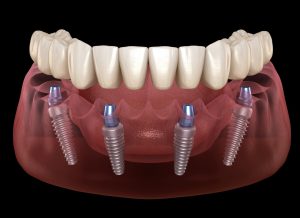
Early Action Through Cancer Screening Saves More Lives
Cancer doesn’t wait for symptoms to show. By the time signs appear, the disease may already be at an advanced stage. That’s why early detection through regular screening is one of the most powerful tools in fighting cancer.
In many cases, screening can detect cancer before any symptoms show up. When caught early, most cancers have significantly better treatment outcomes. It means less invasive treatments, better survival rates, and a higher quality of life.
What Is Cancer Screening and Who Needs It
Cancer screening involves testing healthy individuals for signs of cancer or conditions that may lead to cancer. These tests are not diagnostic—they are designed to flag potential concerns early so that follow-up can be done.
In Singapore, cancer screening is recommended based on age, gender, and family history. Common screening tests include those for breast, cervical, colorectal, and prostate cancers. Some tests, like pap smears or mammograms, are recommended routinely, while others may be done based on risk factors.
The Most Common Screenings You Shouldn’t Ignore
Breast Cancer Screening
Women aged 50 to 69 are typically advised to get mammograms every two years. For women with a family history or other risk factors, screening may start earlier. Mammograms can detect lumps long before they’re felt, giving doctors a chance to act quickly.
Cervical Cancer Screening
Pap smears and HPV tests are recommended for women aged 25 to 69. These tests look for abnormal cells or the presence of the HPV virus, which can lead to cervical cancer. Regular checks can detect changes long before they become dangerous.
Colorectal Cancer Screening
Adults aged 50 and above are encouraged to go for colorectal screening. This usually includes a fecal occult blood test or a colonoscopy. These can catch polyps early—before they have the chance to turn into cancer.
Prostate Cancer Screening
For men over 50 or those with a strong family history, PSA blood tests may be recommended. While not always routine, it can still be a valuable option when there’s a known risk.
Why People Put Off Screening
Despite its importance, many people in Singapore delay or skip screening. Some assume that if they feel fine, they must be healthy. Others are afraid of what the tests might find, or they think the process is too uncomfortable or time-consuming.
But ignoring screening only increases the chance that cancer will be discovered at a later stage, when it’s harder to treat. Early action is far less frightening than dealing with advanced disease.
Making Cancer Screening in Singapore More Accessible
The good news is that cancer screening in Singapore has become more accessible than ever. There are structured national screening programmes, public health subsidies, and dedicated screening centers across the country.
Appointments are generally quick, and many tests are minimally invasive. By integrating screening into your routine checkups, you make it part of your preventive care, just like dental cleanings or eye exams.
When to Start and How Often to Screen
The right time to begin cancer screening depends on your age, gender, and medical history. For most people, the following applies:
- Breast cancer: Women from age 50 onwards, every two years
- Cervical cancer: Women from age 25 to 29 (Pap test), and 30 to 69 (HPV test), every three to five years
- Colorectal cancer: Men and women from age 50, every one to five years depending on the method used
- Prostate cancer: Men from age 50 or earlier with a family history, based on medical advice
It’s best to consult a healthcare provider who can guide you on what’s appropriate for your personal risk profile.
A Simple Step That Makes a Big Difference
Screening doesn’t take long, and it could save your life. You don’t need to feel sick to take action. In fact, the point of screening is to act before problems arise.
By getting regular cancer screening in Singapore, you’re not just protecting your own health. You’re also giving peace of mind to your loved ones, who rely on you and want you to stay well.



